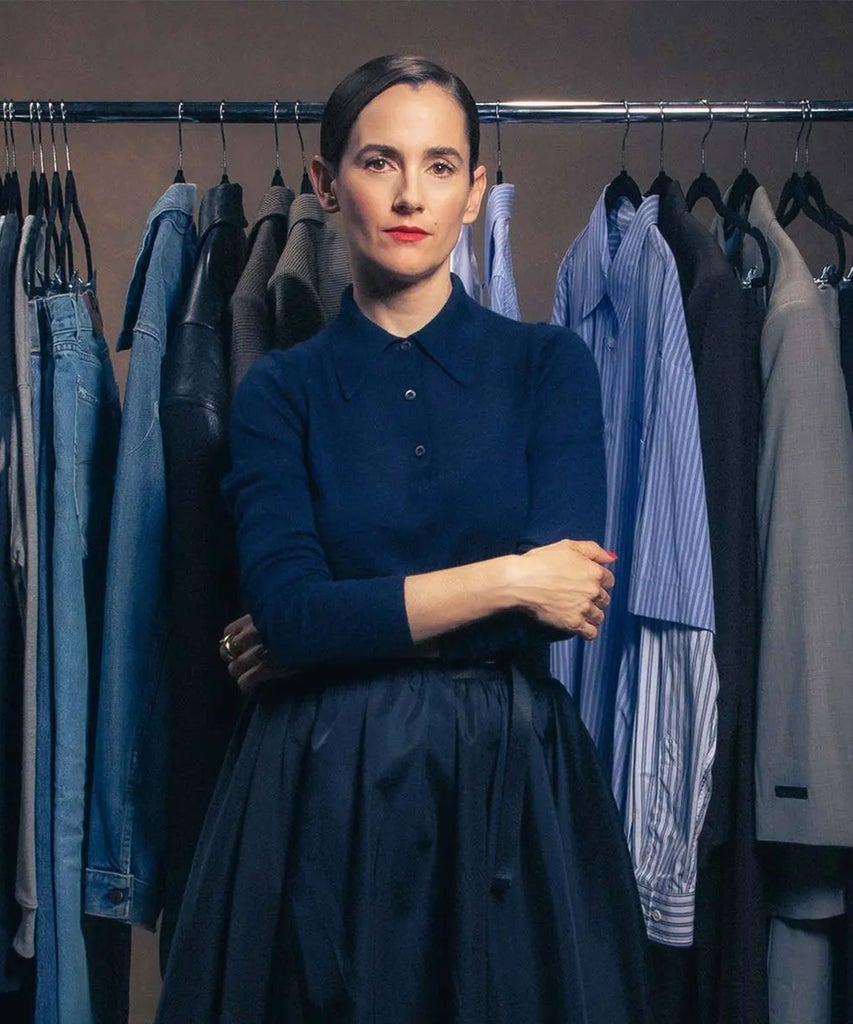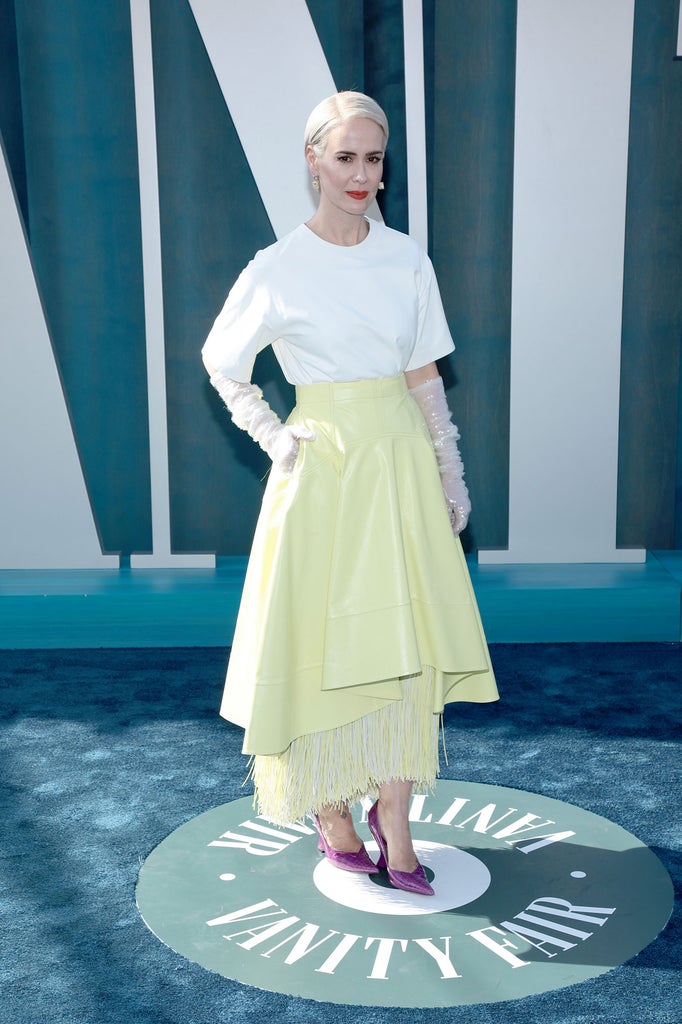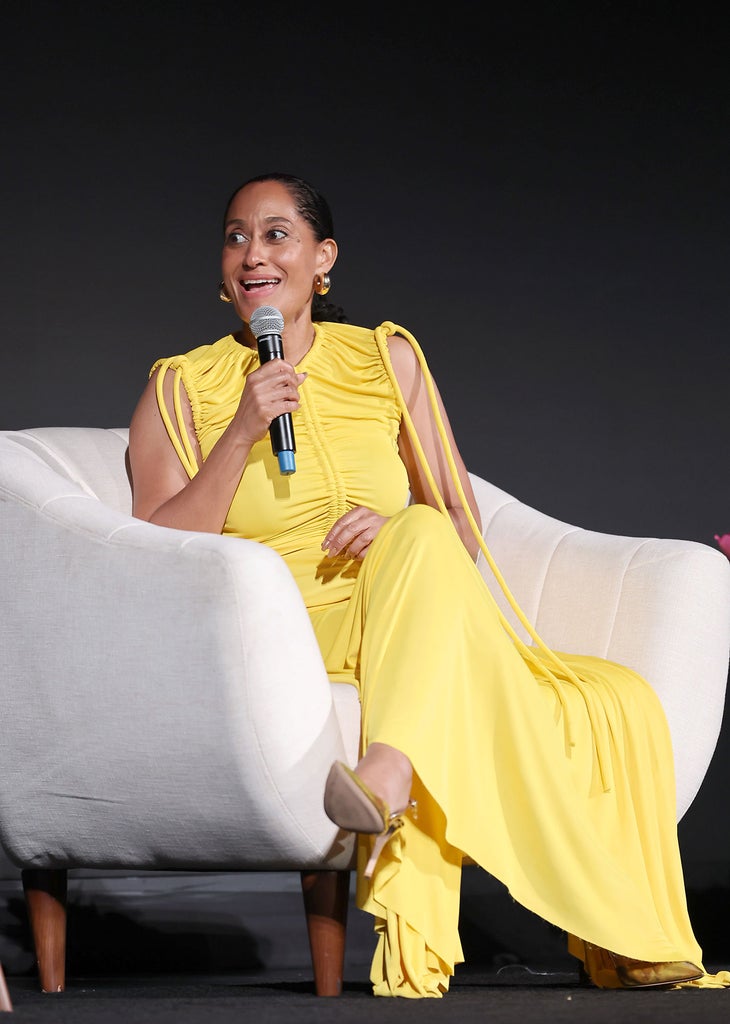
Personal style is an enigma. For decades, magazines have claimed that each season, a new set of trends are the key to honing your personal style, while, in recent years, content creators have paraded their own versions on Instagram and TikTok, offering their followers a glimpse into how they unlocked theirs. Over time, I’ve started to wonder if personal style is actually something that we could learn instead of being born with.
Anything difficult in life takes practice — and a teacher. And when it comes to personal style, few professionals have the credentials to actually teach a class on how to have it for yourself. So when I heard that celebrity stylist Karla Welch – who has worked with Justin Bieber, Hailey Bieber, Tracee Ellis Ross, and Sarah Paulson – was offering a personal style and styling course on MasterClass, the online education platform (with lessons from Hillary Clinton, Kris Jenner, RuPaul, and Mariah Carey), I knew I had to test my theory.
As a fashion writer, it took a lot of humbling to recognise that, contrary to popular belief that those that work in the industry have their fashion DNA nailed down, I have also struggled with finding my personal style. Let’s face it: Admitting that you’ve had no personal style in the past is like saying you’ve had no personality, and who wants to do that? While Welch admits that we don’t need to have good style to live an amazing life, we both agree that “there’s power in it.”
So, after a few hours spent on MasterClass, here’s what I learned from Welch.
Tell a story
When thinking about personal style, Welch asks us to consider it a storytelling tool that allows us to share with strangers who we are in a quick glimpse. It’s no easy task, though, to compile years of personal experiences in a functional and multifaceted wardrobe. Welch recommends starting compiling a moodboard, whether cutting out pictures from magazines or using a digital tool like Pinterest or Milanote, of references — from celebrities and magazine editorials to movies, places, and color palettes — that appeal to you from an aesthetic perspective. Then, she asks that we write down common themes among the images to nail down a description of your personal style.
This is when I realised I’m not off to a bad start. Every year, I put together a style moodboard for myself that helps me start to shape an idea of ‘who I am’ in a specific year in terms of how I want to dress. Looking at 2023’s moodboard, I can already tell a story: There are a lot of menswear-inspired outfits in neutral tones that make up the foundation of my wardrobe, as well as pop punk-infused looks that explain my present obsession with the Y2K Indie Sleaze trend. Then, there are also pops of red that are heavily influenced by the autumn 2023 collections so far, as well as vintage Yves Saint Laurent runway images. The common themes are clear: neutral colours intermingled with a heavy preference for minimal and menswear-inspired silhouettes in black and red, expressing my need for practical on-the-go outfits, as well as my love of goth aesthetics and men’s suiting.

Just get dressed
While we can continue planning outfits ad nauseam, Welch says that overthinking your personal style can hinder spontaneity — or, what she describes as “magic.” Moreover, she says that getting dressed is a habit you have to nurture daily, much like exercising or getting eight hours of sleep, something that may take a bit more intentional effort especially after the pandemic lockdowns kept many at home without a need to dress up every day. Therefore, playing dress up is perhaps the best way to get better at tailoring your personal style. Still, Welch says it needs to come from within. “Never let an outfit out the door that you don’t love,” she says.
To combat the pressure to meet trends or battle any cares for what others might think, Welch recommends setting your own set of rules. For example, she points out the classic dilemma between flats or heels — one that I suffer from daily as working in New York City is a ongoing odyssey of potholes, broken sidewalks, and multiple staircases — which she says we should settle for what works best for ourselves, not what society expects as proper footwear. She also points out that fit and comfort are crucial when it comes to making sartorial rules for ourselves, no matter what definition of comfort we might ascribe to.
This is one tip I tried to stick to while adapting Welch’s commandments to my personal style, especially during New York Fashion Week, when seeing a constant parade of sartorial excellence makes you question if what you have on was the right choice. For example, whenever I’d see Vogue editors wearing sneakers, I’d ask myself if the platform knee-high boots I wore all week were a good idea. In the end, they were because heels make me feel powerful and confident, and that’s a rule I’ll always follow for myself.

Create a wardrobe
Then, there’s the tedious task of actually making your wardrobe work for you, which Welch says is the foundation of enjoying getting dressed every day. She recommends cleaning out your closet, donating the pieces that you don’t wear regularly or have not reached for in a long time. Ask yourself, “What are the pieces that you need in your life?” she says. Out of these pieces, Welch recommends compiling a capsule wardrobe of 8-10 items that can be easily styled together for different occasions — also known as your staples.
While I had recently cleaned out my closet, I did go through it again to choose my current capsule wardrobe, which mainly consists of wide-leg trousers, a leather jacket, a white turtleneck sweater, two button-down shirts, a pair of ankle boots, and a red handbag. But over the past few years, as my closet started to overflow in my New York City apartment, I heavily edited my wardrobe, an exercise that both hurt me (many of those clothes had been with me for years) but also gave me a clean slate to play with an updated palette, as Welch attests in her class.
Still, one of the biggest lessons I took away from Welch’s class is that finding your personal style shouldn’t be a daunting journey. After all, as Welch says, “Taking a risk with how you dress is like the lowest risk you can take in your life.” In that sense, personal style is actually something that we teach ourselves every single day, and while following a few tips from a master stylist like Welch does help, playing with fashion is the only way to find what truly suits us.
So, go on, get dressed.
Karla Welch’s course is now available on MasterClass.
Like what you see? How about some more R29 goodness, right here?
The Best London Fashion Week Street Style